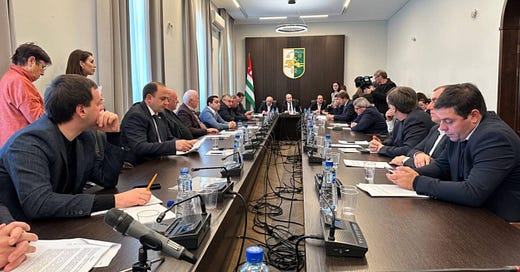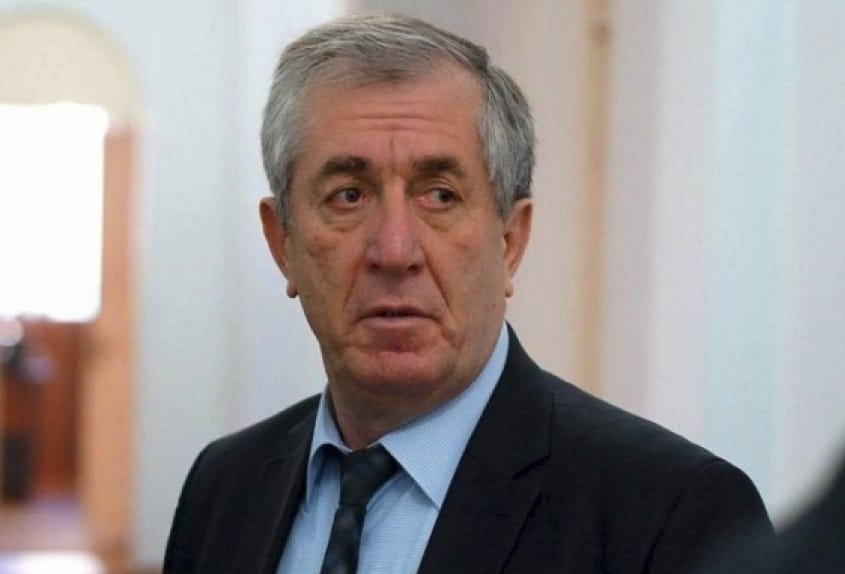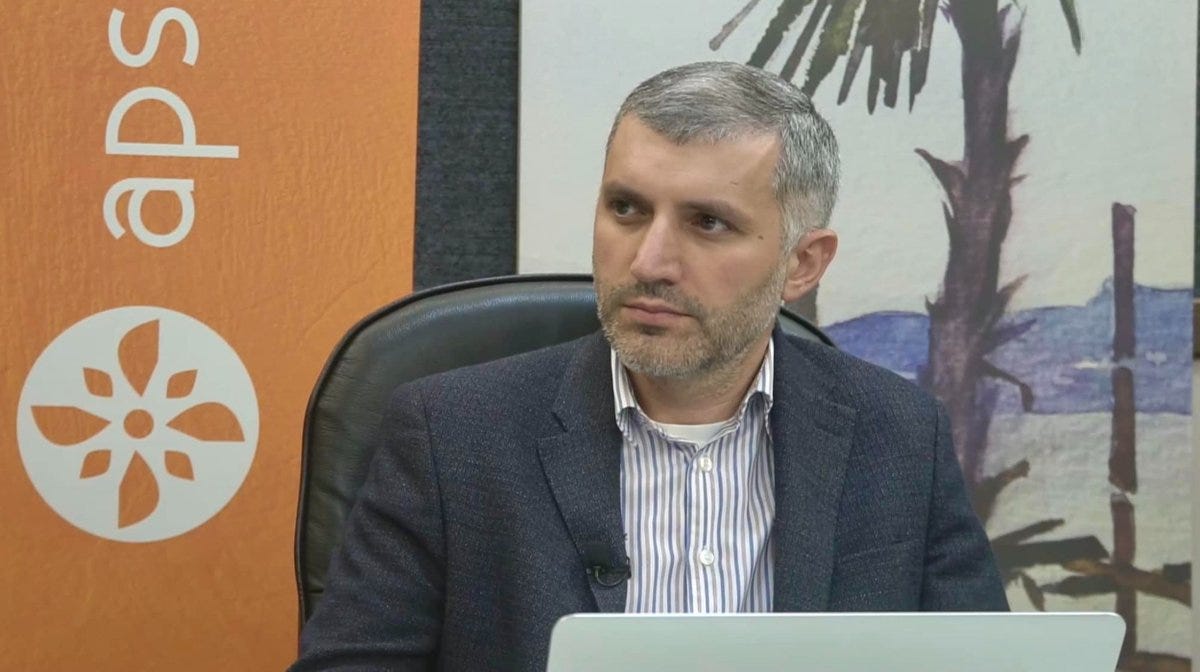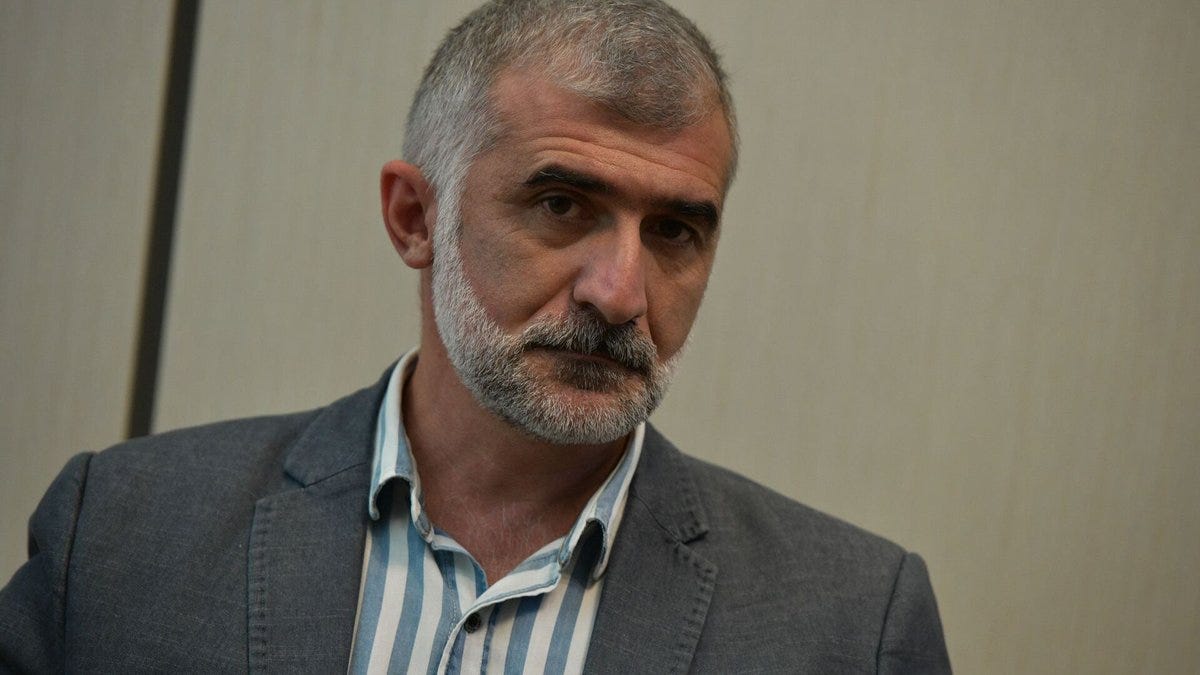Abkhazian Parliament Rejects Russian Investment Agreement
The session, attended by 23 deputies, resulted in 21 votes against the agreement, with two abstentions and no votes in favour.
SUKHUM / AQW’A — The Abkhazian Parliament has decisively rejected a controversial investment agreement with Russia. During an extraordinary session on Tuesday, 3 December 2024, deputies overwhelmingly voted against ratifying the agreement, which had been signed in Moscow on 30 October. The deal had sparked widespread protests and ultimately led to the resignation of former President Aslan Bzhania.
The session, attended by 23 deputies, resulted in 21 votes against the agreement, with two abstentions and no votes in favour. Speaker of Parliament Lasha Ashuba emphasised that the session was convened in accordance with parliamentary regulations after receiving sufficient signatures from members.
During the proceedings, several deputies voiced concerns about the agreement's potential consequences for Abkhazia. Deputy Kan Kvarchiya described the deal as “oppressive” and criticised the government for failing to withdraw it despite mounting public discontent. “This is not an act against Russia. We hoped the executive branch would understand and retract the agreement, but this did not happen. Certain officials, including the Minister of Economy, must bear responsibility for this situation,” Kvarchiya stated.
Deputy Daut Khutaba echoed these concerns, stressing the importance of maintaining strategic relations with Russia while safeguarding Abkhazian sovereignty. “Our decision is not against Russia but for the benefit of our citizens. We must learn to be self-reliant and protect our independence,” he asserted.
Deputy Demur Gogiya highlighted the lack of consultation with parliamentary deputies before the agreement was signed, emphasising the need for Abkhazia to "learn to rely on itself and live independently."
Vice Speaker Astamur Arshba proposed delaying any future agreements until after the presidential election in February 2025, advocating for a more collaborative and informed approach involving economists, business representatives, and the incoming administration.
Protests outside the parliament building underscored widespread opposition to the agreement. Demonstrators, including opposition supporters, demanded answers from Acting President Badra Gunba and accountability from former President Bzhania. Addressing the crowd, Deputy Kan Kvarchiya explained the decision to reject the agreement and vowed to scrutinise the competence of officials involved in promoting it.
The demonstrators also called for a moratorium on real estate development projects and expressed no confidence in several government figures, including the director of the Abkhazian State Television and Radio Company (AGTRK).
Aslan Bzhania, who returned to Abkhazia following his resignation, has announced his candidacy for the early presidential elections scheduled for 15 February 2025.
Parliamentary Speaker Ashuba acknowledged the challenging times ahead, proposing budget cuts and emergency operating measures for government institutions.
Konstantin Zatulin Warns of Strained Relations Following Abkhazian Parliament's Rejection of Russian Agreement
"The refusal by the Abkhazian Parliament to ratify the investment agreement with Russia will likely result in a cooling of relations between Moscow and Sukhum", Konstantin Zatulin, First Deputy Chairman of the State Duma Committee on CIS Affairs, stated in an interview with RTVI.
According to Zatulin, the parliamentary decision was influenced by those behind the November protests in Abkhazia, which led to the resignation of former President Aslan Bzhania. He described the events as a “campaign aimed at overthrowing the current government,” adding that the situation has strained bilateral relations.
Zatulin noted that the protests, which he characterised as a "near coup," forced the Abkhazian leadership to seek compromise through the president’s resignation and the announcement of early elections. He criticised those pushing for the agreement’s rejection, accusing them of pursuing their own agendas at the expense of relations with Russia.
In response to the crisis, Moscow has taken several measures. Since September, financial subsidies for Abkhazian state employees have been frozen, and from 29 November, electricity supplied from Russia to Abkhazia is being charged at commercial rates. Zatulin highlighted that up to 45% of this electricity is consumed by cryptocurrency mining, which previously benefited from subsidised prices.
“This is an example of the consequences of strained relations between the Russian Federation and Abkhazia, arising from the refusal to honour commitments,” Zatulin said. He emphasised that these obligations were initially undertaken by the Abkhazian executive branch with parliamentary awareness.
Zatulin also warned that if tensions continue, the damage to bilateral relations will deepen. He expressed sympathy for Abkhazian citizens, stating they are "hostages to the reckless behaviour of those exerting pressure on the parliament." He criticised some Abkhazian politicians for a pattern of failing to meet their obligations, undermining both trust and the nation’s stability.
Zatulin concluded by urging Abkhazian leaders to consider the long-term consequences of their actions, both for their own people and for relations with Moscow.
Aslan Kobakhia: "You can bend a bureaucrat, but not the people!"
“To those who intend to criticise Abkhazia for rejecting the agreement, my advice is this: carefully read the oppressive contract that was being forced upon us. I am convinced that 99 percent of those criticising us have never even seen this document.
You can bend a bureaucrat, but not the people. A proud nation can even say no to friends when it contradicts our national interests.
Let no one fabricate stories about Abkhazia being dragged somewhere. Abkhazia remains where it has always been. To our true brothers and friends, you are always welcome here! We have never betrayed you!
Шьадаамҭа Аԥсынра🙏”
Aslan Kobakhia
Hero of Abkhazia
Leuan Lagulaa: 'The parliamentary decision can be seen as a definitive conclusion to the chapter of Bzhania’s presidency and a vote of no confidence in his administration.'
“It is essential to understand that Abkhazia has faced challenges rooted in its super-presidential system of governance, which lacks effective mechanisms for overseeing the actions of the head of state. This systemic flaw forced the nation to endure the painful process of Bzhania’s resignation to avert further threats to Abkhazia’s sovereignty and independence. Today marks a day of the Abkhazian people’s will, a day when collective interests took precedence over personal ambitions. However, the challenges are far from over. As Deputy Daut Khutaba rightly noted, the next president will need to "perform miracles of diplomacy" and demonstrate strong character, as Aslan Bzhania and his team of "sectoral professionals" have left behind a difficult legacy.”
Leuan Lagulaa
Editor-in-Chief of ApsnyHabar
Ibragim Chkadua: "Many are now asking the main question of the coming year, and indeed, the key question for our future: Who should we vote for?
“For the past 10 years, I have not participated in elections, be they parliamentary, local, or presidential. This was my protest against the electoral system and the structure of governance in our country. It is clear that we need to change the system of power, which means reforming governance and elections as well.
However, on 15 February, I am ready to cast my vote! I will vote and urge others to vote for a candidate willing to lead Abkhazia for two years, during which they will implement the large-scale reforms that are urgently overdue. After that, the candidate must voluntarily resign to enable simultaneous parliamentary and presidential elections in 2027, and, if they wish, run for a second term themselves.
During these two years, it will be possible to develop a comprehensive set of reforms and, if necessary, hold a referendum on either a revised edition of the Constitution of the Republic of Abkhazia or an entirely new Constitution. Such a person would undoubtedly earn a place of honour among the national leaders in Abkhazian history.
The guarantee of such intentions must be their firm pre-election commitments, an oath at a sacred shrine, and a pledge to the people. Some may call this naive, but it is a path that eliminates both legal and political obstacles to carrying out reforms.
P.S. This does not apply to the recently departed president... Here, the principle holds true: you cannot step into the same river twice."
Ibragim Ckhadua
Director, war (1992-93) veteran.








